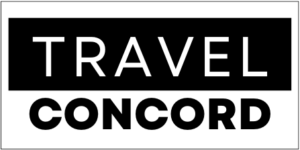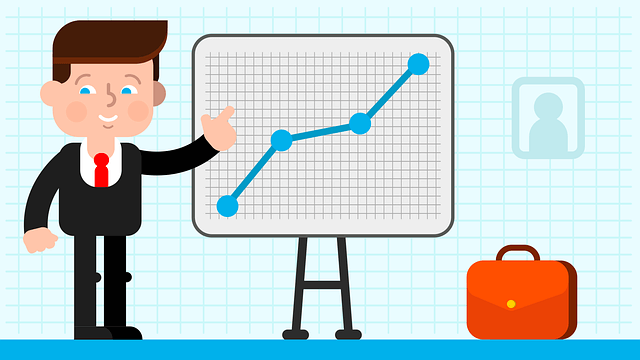Knowing how the digital economy has affected the travel industry will not only help you to save costs but will also help you to stay ahead of your competitors. Technology has affected nearly every aspect of our lives, including how we travel.
The emergence of the digital economy has brought about significant changes in the travel industry. These changes have made travelling more accessible, and convenient for travelers.
Since COVID, more businesses have focused their operations online. Workers now work more remotely with the help of digital tools and platforms. Shopping and even processing payments are now very dependent on digitized methods.
Customers and users no longer have to queue up or go to physical stores to get their needs met.
Travelers do not have to flip pages of brochures looking for housing options or places to visit, etc.
This article will discuss how the Digital economy is affecting the travel industry. In extension, the advantages, and the disadvantages of this impact.
What is the Digital Economy?
To understand the impact of the digital economy, we must know what it is.
The digital economy is simply the economic activities carried out through digital technologies. It is the businesses, data, connections, and devices involved in everyday online interactions. The technologies that make this possible include the Internet, mobile technology, ICT, etc.
Technologies that facilitate the digital economy in the travel industry
Below are some of the technologies the travel industry depends on in the meantime, as new technologies continue to spring up:
- Websites
- Mobile apps
- Cloud computing
- Artificial intelligence (AI)
- Data analytics, etc.
Now, let’s look at how these technologies affect the travel industry.
How the digital economy is affecting the travel industry
Booking and Planning
Gone are the days of flipping through brochures or calling travel agents to plan a trip. The digital economy has empowered travelers to research.
Booking sites allow travelers to compare prices, and book flights, accommodations, etc. online. Platforms like Expedia, Booking.com, and Airbnb have streamlined the booking process. They offer a wide range of options at competitive prices.
Also Read: Can Your Tech Skills Increase Your Chances of Visa Approval?
Personalized Experiences
Travel companies can now gather large data through digital technologies. This data when analysed can give insight into consumer preferences and behaviors. Business owners can then suggest or tailor offers based on this information. This is done through the use of cloud computing/storage, and data analytics.
From personalized itineraries to targeted promotions, travelers now enjoy more relevant offers, enhancing their overall experience.
Think about a time you searched for something on Google, only to see an advert about it on social media, later. That is how your data is used to suggest offers you may be interested in.
Mobile Accessibility
Mobile apps are easy to access through smartphones. Travelers now have access to a wealth of information and services right at their fingertips.
Mobile apps provide updates on flight status, directions, and local attractions. Some even offer language translation, making travel more convenient and stress-free.
Sharing Economy
The digital economy has transformed the way people travel and experience destinations. Services like Uber, Lyft, and Airbnb have disrupted traditional transportation and accommodation models. They offer travelers more affordable and flexible options. This peer-to-peer approach also fosters a sense of community, as travelers interact with locals in their environments.
Enhanced Communication
Digital communication tools such as social media, messaging apps, and review platforms have improved communication between users and service providers. Travelers can share their experiences, seek recommendations, and voice their opinions.
Businesses on the other hand can engage with customers in real time, address concerns, and gather feedback to improve their services.
This ease in communications can help boost a travel agency’s business or lead to a quick decline. This is because a good percentage of users rely on other customers’ reviews to decide whether to patronize a service provider or not.
Data Analytics and Insights
The digital economy has enabled travel companies to harness the power of data analytics. They can gain valuable insights into market trends, consumer behavior, and preferences. By analyzing data from online bookings, social media, and customer reviews, businesses can make informed decisions. They can optimize their offers, and stay ahead of the competition.
Automation
Artificial intelligence is fast-changing the game. Travel agencies can now automate their services, and use chatbots that act as virtual assistants to users.
Difficulties users may have while using a service can be compiled and answers are given through chatbots.
Digital payments
Platforms like PayPal, stripe, Payoneer, etc, allow travelers to make and receive payments from any part of the world. They can also transact in their currency of choice. This can increase patronage due to the ease and security of transacting online.
Virtual and augmented reality
With virtual reality, travelers can take an almost real tour of their accommodations or destinations of choice from the comfort of their homes. They can have a true feel of what they’re expecting to get when they travel. Those who do not wish to travel can also enjoy the destinations they choose through the help of virtual and augmented reality.
The good side of the impact of the digital economy on the travel industry
Boost productivity
Saves cost on physical infrastructure and sometimes staffing.
Wider reach
With the digital economy, service providers are not limited to their immediate environment. They can scale up to serve a wider or worldwide audience.
Better decision making
Business owners can make informed decisions by analyzing the trends and insights obtained from available data.
Convenience
Arguably the top on the list of the good sides. Travelers can plan and process their travel plans from anywhere. Who doesn’t want to be able to process tasks easily from the comfort of their homes or offices?
The dark side of the impact of the digital economy on the travel industry
Business disruption
The digital economy can boost productivity and increase reach. However, it can also displace businesses. Those who are unable to integrate these technologies into their operations will face a decline or shutdown. Also, not every business person can keep up with constantly emerging trends. This will lead to new businesses emerging and collapse for others.
Security and privacy concerns
Almost every online tool tries to gather personal data from its users. This has raised concerns about the privacy and security of individuals. Concerns about how this data is used and distributed etc.
Job insecurity
As new technologies continue to emerge, certain job roles are fast becoming obsolete. Roles like virtual assistants are now replaced by AI automation and chatbots. Even travel agents face a threat, as more people depend on online services.
Also Read: List of Tech-related Items That Are Not Allowed in a Flight
Conclusion
The digital economy has revolutionized how we plan, experience, and share our travels. From booking flights and accommodations to discovering new destinations and interacting with locals. Technology has made travel more accessible, and convenient than ever before.
As technology continues to evolve, the travel industry will undergo further transformation. These transformations will keep shaping the way we explore the world for years to come.
Whether this shift will be good or bad for your business will depend on you, the owner. Business owners must adapt and adopt digital technologies into their operations. When engaged properly, the digital economy offers more advantages to both users and service providers.


























[…] Also Read: How the Digital Economy is Affecting the Travel Industry […]
[…] Read Also: How the Digital Economy is Affecting the Travel Industry […]